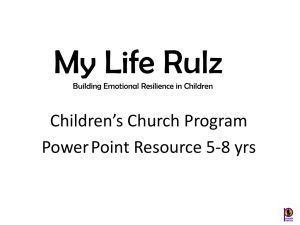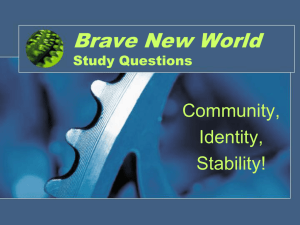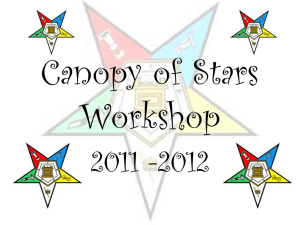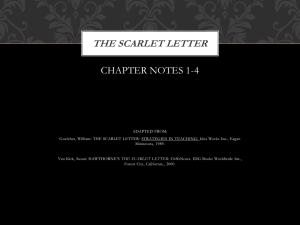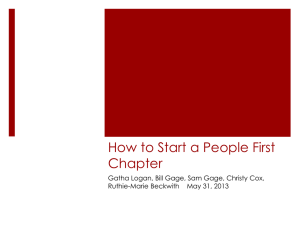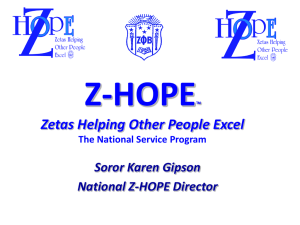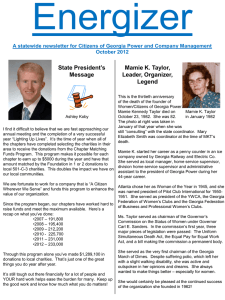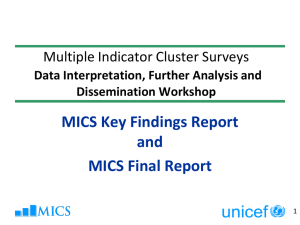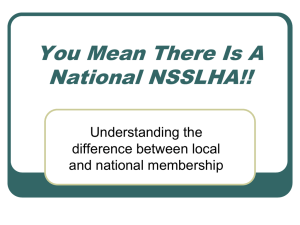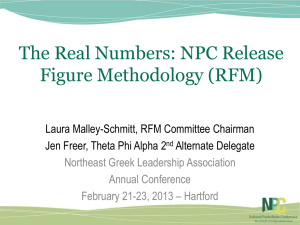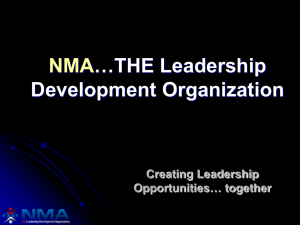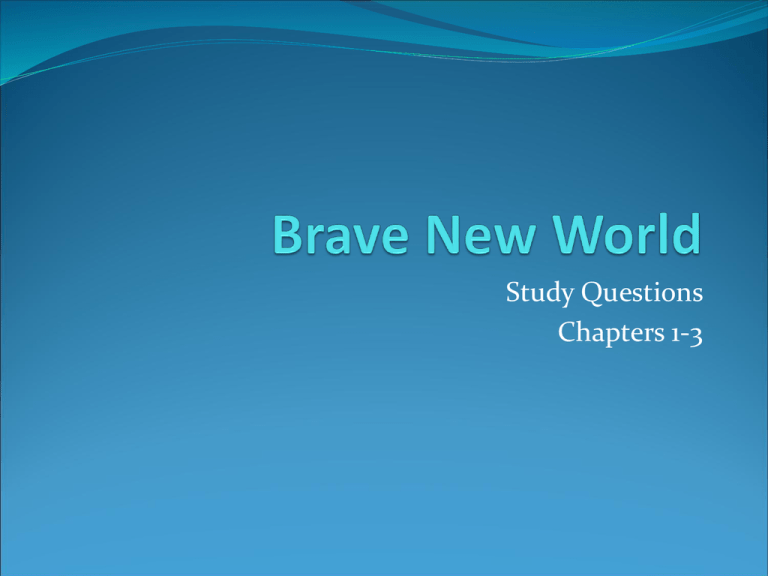
Study Questions
Chapters 1-3
Chapter 1
1. Describe the setting for the opening chapter of
Brave New World. In what city and year does this
novel take place?
Chapter 1
1. Describe the setting for the opening chapter of
Brave New World. In what city and year does this
novel take place?
It is inside the Central London Hatchery and
Conditioning Center. The atmosphere is stark and
clinical. A.F. 632
Chapter 1
2. What is the motto of the World State?
Chapter 1
2. What is the motto of the World State?
Community, Identity, Stability
Chapter 1
3. Explain what is happening at the Hatchery and
Conditioning Center.
Chapter 1
3. Explain what is happening at the Hatchery and
Conditioning Center.
The Director of Hatcheries and Conditioning is
conducting new students through the Center. They
are learning about artificial reproduction and the
hatching of the eggs.
Chapter 1
4. Describe Bokanovsky’s process.
Chapter 1
4. Describe Bokanovsky’s process.
One egg is made to “bud,” resulting in as many as 96
identical embryos.
Chapter 1
5. What are the five castes of the World State?
Chapter 1
5. What are the five castes of the World State?
Alpha, Beta, Gamma, Delta, Epsilon
Chapter 2
1. What two objects are the babies being conditioned
to dislike?
Chapter 2
1. What two objects are the babies being conditioned
to dislike?
They are books and flowers.
Chapter 2
2. Why does the State condition the masses to dislike
the country?
Chapter 2
2. Why does the State condition the masses to dislike
the country?
They do not consume any goods if they simply enjoy
natural pleasures in the country.
Chapter 2
3. Explain how hypnopaedia works.
Chapter 2
3. Explain how hypnopaedia works.
Children are taught State-prescribed moral and social
principles through sleep-teaching, three times a week
for 30 months.
Chapter 2
4. What does the child’s mind and, later, the adult’s
become?
Chapter 2
4. What does the child’s mind and, later, the adult’s
become?
The child is the sum of all of these suggestions made
through hypnopaedia.
Chapter 3
1. What is the requirement for any new games? Why is
this so?
Chapter 3
1. What is the requirement for any new games? Why is
this so?
They must require at least as much apparatus as the
most complicated of existing games to increase
consumption.
Chapter 3
2. Explain the State’s attitude toward sex. How does
the State regard marriage?
Chapter 3
2. Explain the State’s attitude toward sex. How does
the State regard marriage?
Citizens are expected to be promiscuous. Children are
taught erotic play to free them of any sense of guilt or
repression. They feel that marriage, monogamy, and
romance keep a society from being stable because they
cause an exclusiveness, a narrow channeling of
impulse and energy, which focus upon the individual
only as a part of the whole community.
Chapter 3
3. “Ending is better than mending.” “The more
stitches, the less riches.” How do these sayings express
the economic views of the State?
Chapter 3
3. “Ending is better than mending.” “The more
stitches, the less riches.” How do these sayings express
the economic views of the State?
Mending, repairing any goods, is contrary to constant
consumption, the economic basis of the World State.
Chapters 1-3
1. What is AF. 632? What can you infer about this
society from such a designation?
Chapters 1-3
1. What is AF. 632? What can you infer about this
society from such a designation?
After Ford 632 – this society worships production,
materialism.
Chapters 1-3
2. How many individuals can be produced from one
egg and one sperm?
Chapters 1-3
2. How many individuals can be produced from one
egg and one sperm?
96
Chapters 1-3
3. What is the purpose of the processes that take place
in the Social Predestination Room?
Chapters 1-3
3. What is the purpose of the processes that take place
in the Social Predestination Room?
The fetuses are chemically and otherwise treated to
suit them for a certain social caste and job.
Chapters 1-3
4. What is the point of conditioning the masses to hate
nature?
Chapters 1-3
4. What is the point of conditioning the masses to hate
nature?
A love of nature does not keep factories busy.
Chapters 1-3
5. What kinds of things do the children hear while
they are asleep?
Chapters 1-3
5. What kinds of things do the children hear while
they are asleep?
messages that convince them they are very happy
Chapters 1-3
6. Who is Mustapha Mond? What does he say about
history?
Chapters 1-3
6. Who is Mustapha Mond? What does he say about
history?
Western European Controller; It’s bunk
Chapters 1-3
7. Describe Lenina Crowne.
Chapters 1-3
7. Describe Lenina Crowne.
A young and attractive woman who works at the
Hatcheries and Conditioning Centre, Lenina is
“having” Henry Foster exclusively.
Chapters 1-3
8. What is “wrong” with Bernard Marx?
Chapters 1-3
8. What is “wrong” with Bernard Marx?
He is a bit small for an Alpha, likes to be alone, doesn’t
like to hear Lenina discussed as if she were a mere
piece of meat.
Chapters 1-3
9. What is soma?
Chapters 1-3
9. What is soma?
A drug with no side effects which provides an escape
from reality





